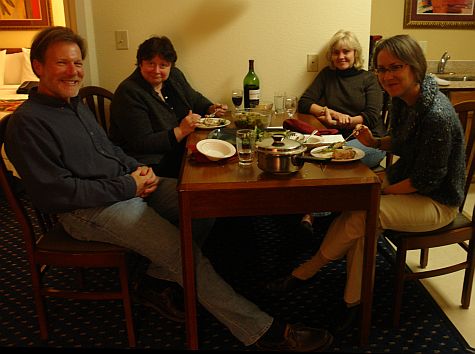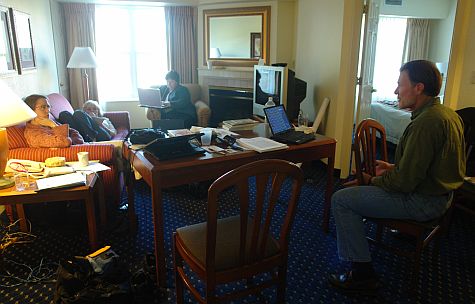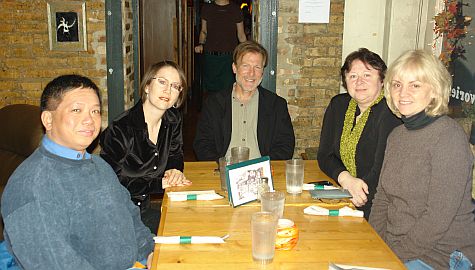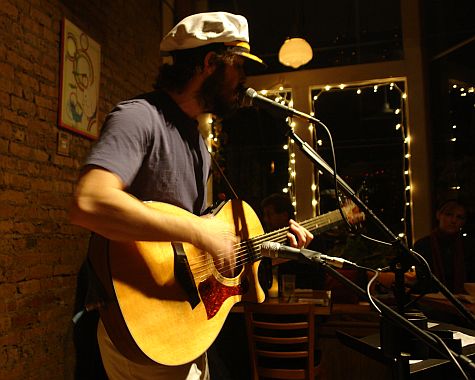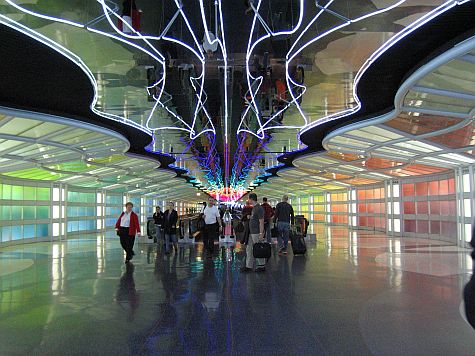Here’s what research looks like. Sometimes it’s better to have a relaxed venue, as an alternative to sitting around a conference table.
After a full day of conversations, we took a break in the evening to clear our minds. Taking advantage of being in Chicago, we drove into the city and had dinner at Uncommon Ground on North Clark.
One motivation for choosing this restaurant was that they feature live performances of folk music. Brice Woodall was playing that night … and even offered some free CDs (in the spirit of Radiohead giving music away).
Less than 48 hours on the ground, and I was back at O’Hare Airport. I don’t usually fly through this airport, because it’s relatively close to Toronto. Since my hectic scheduled happened to coincide with a trip to Finland, it was easier to just fly to Europe from Chicago, rather than returning to Toronto. This took me to a terminal that I hadn’t seen before, with a funky light show in the underpass.
The Rosemont meeting has turned out to be the first in a floating series of research meetings held in various venues around the world, when at least two or three of us can get together. With a fast-paced day job and the ongoing incompletedness of doctoral studies hanging over me, I’m happy to get together for the few days when we can work uninhibited on shared research interests.

